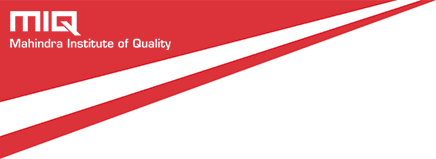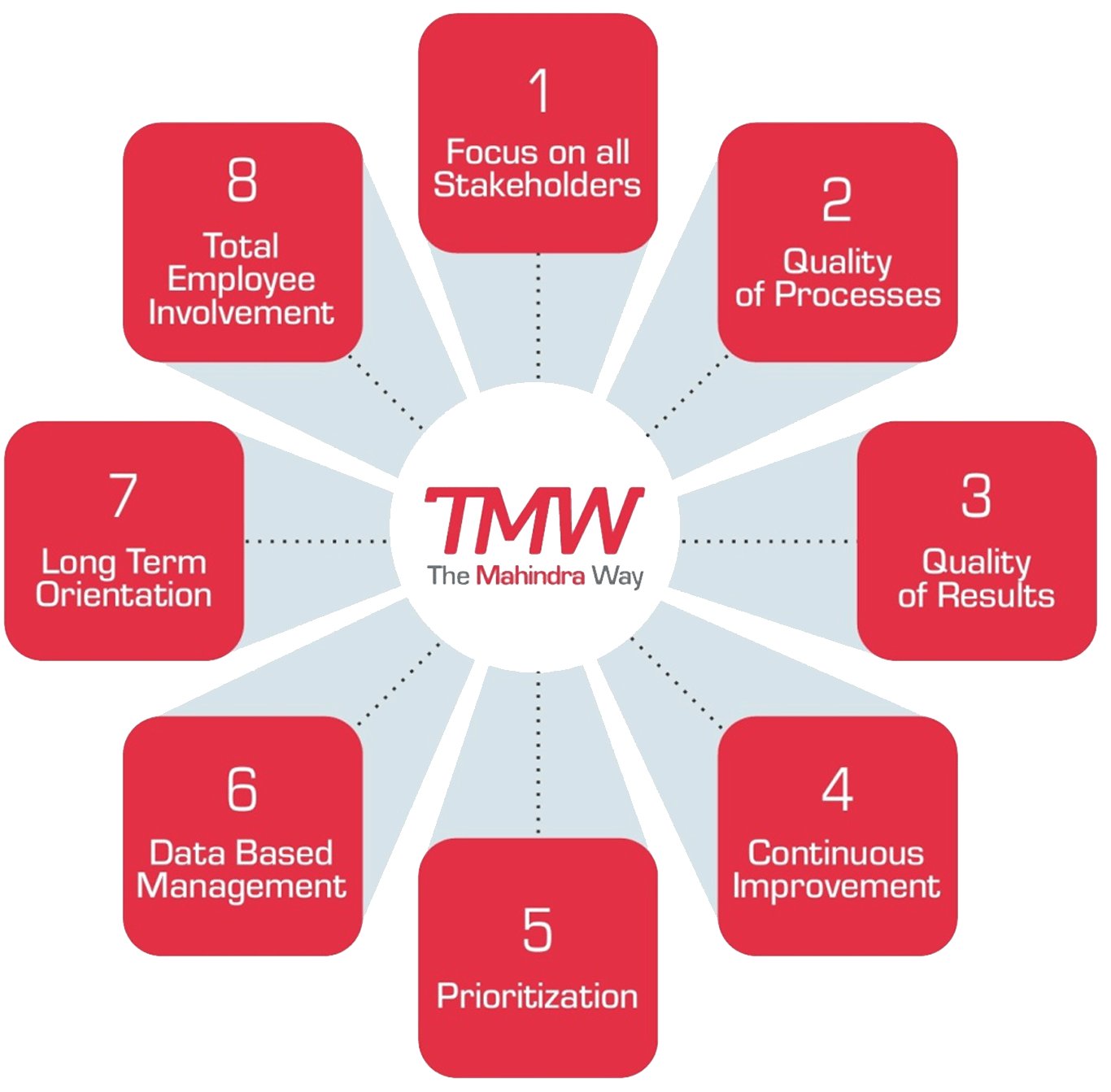
LOADING
The Mahindra Way promotes the adoption of the following eight Basic Principles in an organization.
These principles are fundamental tenets of The Mahindra Way and need to be fully understood and applied by companies.

TMW works on the principle that sustainable business results require attention being paid to the current and future needs of all stakeholders.
For external customers, TMW requires a ‘Market-in’ approach of understanding the expressed needs as well as latent needs of customers and gearing up all company processes to meet the same by providing optimized customer value.
For internal customers, TMW works on the principle that ‘Next Process is the Customer’ so that every business operation seeks efficiency and excellence in meeting the requirements of other related processes.
For suppliers, dealers, shareholders, employees, environment and society, TMW promotes the identification of their current and future needs and the gearing up of internal processes to meet them so that a company drives positive change for all its stakeholders.
TMW considers processes to be the backbone of a business. Therefore, while results are given importance, equal emphasis is laid on the efficiency of the process through which results are achieved. TMW, therefore, promotes a continuous drive for improving process efficiency by systematically understanding, analyzing, executing and sustaining the improvements undertaken. This requires companies to encourage alternative thinking to seek ever higher levels of process excellence.
TMW gives importance to the achievement of business results including Productivity, Quality, Cost, Delivery, Safety and Morale. It assesses whether results achieved were as per plan or budget, how these compare with benchmarks like industry or competitor performance and whether the business has processes which ensure that the results are sustainable in the long term.
TMW works on the principle that even the most efficient businesses or processes are amenable to further improvement. Therefore, TMW assigns high importance to a structured approach to continuous improvement. It describes this simply as PDCA:
This PDCA process is a very important element of TMW. It represents the underlying principle of continuous improvement - that an organization should never become complacent and should accept no limits to the levels of excellence it targets and the higher standards it sets for itself.
TMW recognizes the need to be practical in an organization’s journey of continuous improvement. It, therefore, promotes the principle of prioritization in identifying and selecting the issues to be tackled which have the maximum impact on current and future business results thereby ensuring optimum utilization of resources.
TMW requires the Basic Principles to be applied on the basis of factual, quantitative data. This ensures that plans, changes and results can be represented and examined based on hard facts rather than through the judgment or opinions of different people. TMW respects the importance of management experience, entrepreneurship, intuition or innovative thinking but requires that decisions, actions and results arising out of these should be viewed based on quantitative data.
TMW considers the pursuit of excellence through continuous improvement as a long term endeavor of an organization. It, therefore, promotes a long term strategic approach to business planning. For example, TMW examines the quality of business results from the point of view of long term consistency and sustainability and not short term gains.
TMW recognizes that investment of resources for long term goals - like customer satisfaction, improvement in product or service quality, development of people, improvement in process efficiencies and productivity - may all take time to generate returns.
TMW requires a company to have a structured approach for business risk identification and mitigation. Similarly, TMW expects due attention being paid to sustainability and corporate social responsibility.
TMW considers quality improvement and the strive for excellence to be activities which are not restricted to the senior echelons of a business. These need to be deployed across the entire organization so that everyone is involved in driving positive change. It, therefore, emphasizes the need for training, involvement and encouragement of employees across functions and levels, including non-management staff, shop floor workers, operators, part time and fixed term contract employees, etc. Where operations are substantially carried out by contractors, TMW encourages the involvement of contractors’ employees, to the extent feasible.